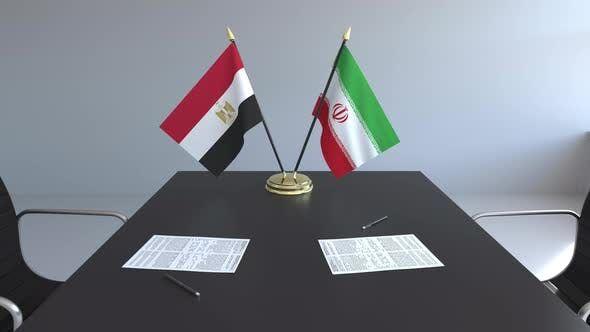The announcement of the support of the Leader of the Revolution for the improvement of the relations with Egypt, in a public and unprecedented manner and an official meeting, contains two key points: first, the foreign policy orientation of the Islamic Republic of Iran, which, especially in the past two years, has prioritized expansion of relations with the countries of the region, the Islamic world and Asia. Second is Egypt’s strategic and geopolitical position in the region and the Islamic world.
Egypt a priority in improving foreign relations
If negotiations on the mechanisms of Tehran-Cairo relations were not apparent before, after the recent statements of the Supreme Leader of the Revolution, the situation is completely clear; Egypt is among the priorities of foreign relations, which the highest official of the Islamic Republic of Iran publicly welcomes. This has provided Egypt with a good opportunity to improve bilateral relations.
Recently, “Abdullah Al-Ashaal,” the former assistant to the Egyptian foreign minister, said in a statement, “Cairo’s strategic interests are behind the restoration of relations with Iran, which will benefit both countries, especially the Egyptian side.”
Consequences
Improvement of relations between Egypt and Iran has significant consequences, some important of which are as follows:
Regional and political
The resumption of relations between Tehran and Cairo will accelerate the formation of a new order, which has recently shown itself in the form of the reorganization of regional alliances and normalization of relations between countries that were previously in a direct and proxy conflict with each other, especially Iran and Saudi Arabia. Egypt’s entry into the process of normalizing foreign relations with Iran can effectively facilitate and consolidate the foundations of the new order being formed.
Egypt and Iran have an influential position in most of the security, political, etc. equations of West Asia, and the relationship between the two is one of the important factors in changing or adjusting the balance of power in the region. Therefore, friendly relations between the two countries definitely leave significant results in the regional balance on the one hand and the international policy towards the region on the other hand.
In addition, Iran and Egypt have some similar unique strategic and geopolitical features that are rare in the region and even the world. For example, two countries dominate two strategic straits of the world. In this sense, the interaction and synergy of the two countries can play an important role in improving the level of security and stability in the region.
Also, the two countries can find a suitable guarantee for their regional interests while communicating. Moreover, they facilitate and accelerate the ground for Cairo to play a good role along with Tehran’s very favorable influence in crises that are somehow caused by unfriendly relations between Tehran and Cairo.
Economic and commercial
Currently, most of the Egyptian government focuses on its complex economic problems. Egypt’s economy is on the verge of bankruptcy and ranks fifth in the world. Besides, there are no efficient mechanisms to solve economic problems inside the country. The monetary centers of the world, including the International Monetary Fund, cannot take effective measures in this regard.
These issues have made Egyptians welcome policies that can solve part of their economic problems. Improving the foreign policy environment is an important solution that Egypt has put on the agenda.
Interaction with Iran, considering its high economic capacities, especially in the fields of tourism, which is one of the main sources of Egypt’s income, can significantly help that country.
It is worth mentioning that in the past weeks, the Ministry of Tourism of Egypt has provided new facilities for the entry of Iranian tourists on tourist tours to Sharm El Sheikh, which is considered a good economic opening for Egypt.
To some extent, the resumption of bilateral relations expands trade exchanges and improves the economic indicators of the two countries, especially Egypt. In addition, Egypt makes Iran’s trade, economic and commercial presence in Africa easy and low-cost.
Of course, improving relations with Egypt is a good opportunity and achievement for the Islamic Republic. In a situation where the Islamic Republic of Iran is facing foreign sanctions, the more foreign interactions it has, the better its security and national and economic interests will be secured and guaranteed.
Prospect
Considering the historical roots of the bilateral and regional problems and disputes between the two countries, improving the relations between the two parties will definitely create conditions in which the depth and scope of the disputes will be gradually reduced and minimized.
Of course, the United States, Britain, the Zionist regime, and the centers and currents close to Wahhabism do not agree with improving relations between Tehran and Cairo and evaluate it against their regional interests. In a confidential message, Netanyahu expressed his deep concern to Egypt about the developments that will happen in Tehran-Cairo relations. Inside Egypt, some elements and groups are against any relationship with Iran. Therefore, it is necessary for the two sides to keep in mind the necessary vigilance in this regard.










0 Comments